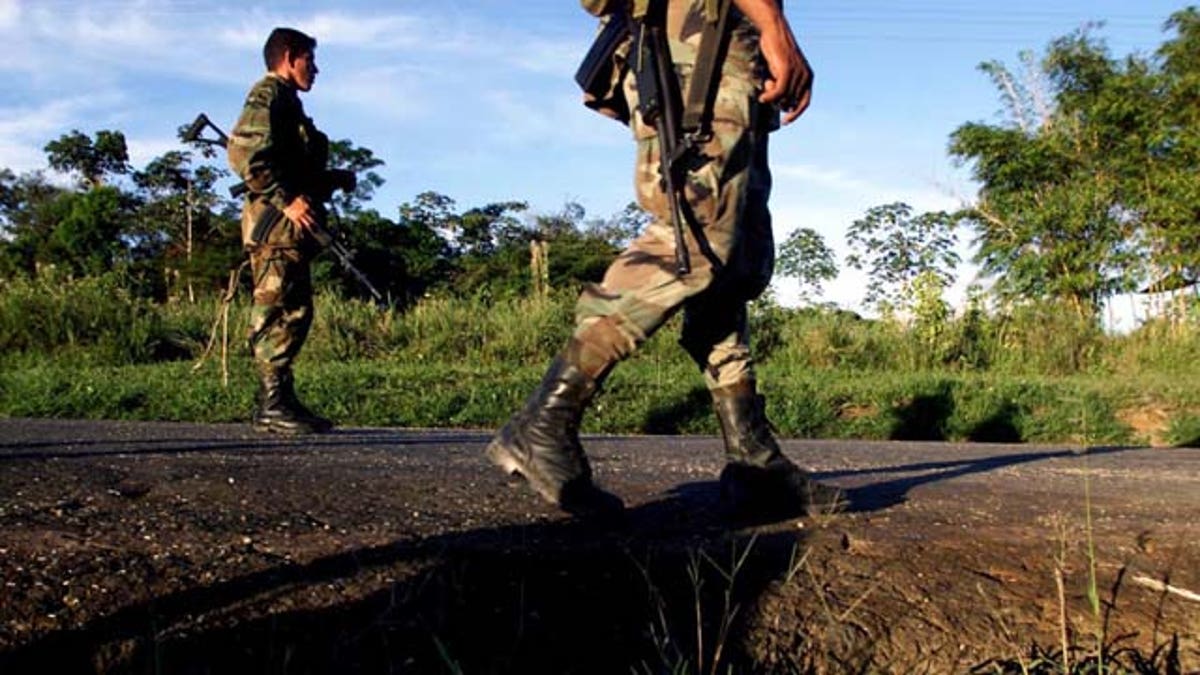
(Photo by Carlos Villalon/Getty Images.) (2002 Getty Images)
As peace talks between the Colombian government and the rebel group the Revolutionary Armed Forces of Colombia (FARC) continue to progress slowly in Havana, some mayors back in the Andean nation have taken it in their own hands to open talks with guerrillas, much to the ire of the national government.
In a letter, Colombian Interior Minister Fernando Carrillo warned mayors and other local officials against engaging in their own negotiations with the FARC, stating that only members of the government involved in the talks in Cuba can establish communications with members of armed group. Carrillo said politicians who disregard the warning will be subject to lawsuits.
"It is only through the dialogue table in Havana and from the nominees for this, which may bring some dialogue with illegal armed groups and in particular with the FARC," the letter stated, according to Colombian newspaper El Tiempo.
The warnings come as communities around the country face pressure from FARC operating in their areas, especially in especially in the department of Guaviare. Despite the FARC declaring a ceasefire during the peace talks, the Colombian government has continued attacks on purported rebel encampments, and the FARC have retaliated with a number of bombings and strikes.
Earlier this month, some 20 rebels were killed by the Colombian military and the FARC were allegedly responsible for the killing of one civilian and the wounding of three others during a bombing in the village of Caloto, in the department of Cauca.
The FARC are Latin America’s oldest surviving guerrilla movement, operating its war against the Colombian government since the mid-1960s. In recent years the Marxist group has become heavily involved the country’s lucrative cocaine trade and by some accounts is the country’s largest drug trafficking organization.
Once controlling a region of the country the size of Switzerland, the FARC have seen a drop in its power and numbers since former Colombian President Alvaro Uribe – along with then-defense minister and current president Juan Manuel Santos – took a heavy-handed, militaristic approach to combating the armed group.
Since 2001, it is estimated that FARC numbers have dropped from 16,000 to 8,000 due in part to the demobilization effort, but also to the strong arm tactics of Uribe.
The military effort by Uribe has also led to hundreds of human rights cases from the 2000s that coincided with major battlefield gains by Colombia's U.S.-backed military against the leftist guerrilla. Colombian military units have also colluded with right-wing death squads responsible for the killings of thousands of suspected rebel sympathizers.
Despite the warning by the Colombian attorney general, the letter also encouraged local mayors to provide the government with information about “the problems afflicting the region" in attempt to better guide the agenda of the peace talks.
The Ministry of the Interior, along with the Office of the High Commissioner for Peace and the Colombian Federation of Municipalities “shall make available various joint working mechanisms enabling it to gather this knowledge and send it to the Government delegation at the talks,” the letter stated.
Follow us on twitter.com/foxnewslatino
Like us at facebook.com/foxnewslatino







































